

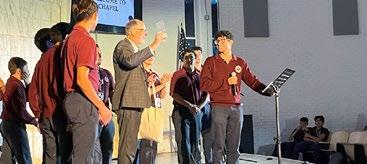
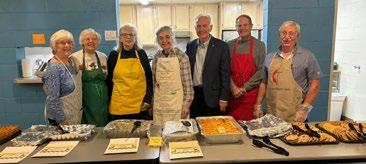
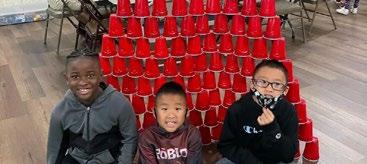
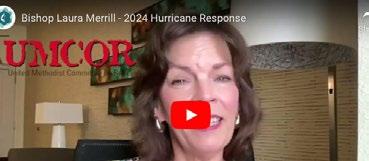







Board members,students, and guests gathered Oct. 14, at the Lydia Patterson Institute for the official dedication of the Bishop Jimmy Nunn STEM Makerspace and Robotics Lab.” This is the speech by student Fernando Zapot
I stand here filled with gratitude and excitement as we celebrate the realization of a dream that started as a simple idea and has since grown into something far greater than we ever imagined. When the robotics team first came together, we had one goal in mind: to create a dedicated space where we could work on our robot— an environment where creativity and innovation could thrive.
But as we started planning, discussing, and brainstorming, it became clear that our vision could be bigger. The more we talked about the tools and resources we would need, the more we realized that these weren’t just resources for robotics—they were resources for everyone. Why limit the possibilities to just one team? We knew this could be an opportunity to create something that would benefit not only us, but the entire student body.
And so, the idea of a simple robotics
workspace evolved into something much more - a makerspace. A place where anyone with an idea or a curiosity can come to experiment, learn, and build. A place where students from all walks of life, not just those in robotics, can gather to share ideas, collaborate on projects, and learn from one another. Equipped with 3D printers, laser cutters, and milling devices, this space represents more than just technology. It represents possibility.
Gratitude.

Now, we have come together thanks to Bishop Nunn’s generous gift, ready to begin the renovation and create this makerspace for our school. This incredible contribution is what makes this vision a reality, and for that, we are deeply thankful. Soon, our school will have a place where students can create, innovate, and explore their ideas in
ways we’ve never been able to before.
Today, this makerspace stands as a testament to the power of collaboration, shared vision, and the belief that innovation is for everyone. It will serve not only the robotics team but all students, fostering creativity across every discipline and interest. Whether you’re building a robot, designing an art piece, or creating a new invention, this space is yours.

I’d like to take a moment to thank everyone who helped make this possible—our teachers, administrators, donors, and, of course, the students who believed in this vision. And a special thank you to Bishop Nunn, whose generosity has sparked the beginning of something truly transformational for our school.
This is just the beginning. As we move forward, I hope this space becomes a hub of creativity, a place where students from all backgrounds and interests feel welcome to explore, learn, and create. I can’t wait to see the incredible things that will come out of this makerspace.
Thank you!


Rev. Derrek Belase and Bishop Jimmy Nunn presented a check for $26,000 to help fund the makerspace. This funding was supported by a special offering taken up during Annual Conference 2024.

BY MIKE MILLER
On Thursday, Oct. 17, the Faith UMC Dialogue Sunday School Class served a lunch of homemade casseroles and homemade rolls, plus trays of cookies to the students at the TU (University of Tulsa) Wesley Center in Tulsa. About 18 cooks made homemade casseroles and one cook, Deborah McIntyre, made 180 of her famous homemade rolls, to serve a delicious meal at the TU Wesley Center. We served about 165 persons, - some more than once - and pretty much served every last spoonful. Nine volunteers plus Rev. Emily Robnett and her son Bram did the serving and clean up.
Our class leader Mike created labels for each casserole, so the students with dietary restrictions could see what was in each dish. One of our Jordanian class members, Salim Akrabawi, cooked a dish called Nejadra, of rice, lentils and onions
which was also a vegan dish and very popular. And the Wesley provided drinks, salads and fruit.
No one left hungry, and the compliments to the chefs were abounding!

Several Faith UMC cooks made a huge homemade meal for 165 hungry student at TU Wesley. Submitted photos.
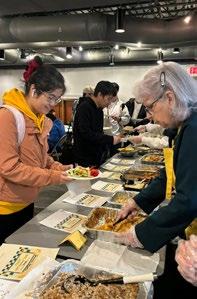
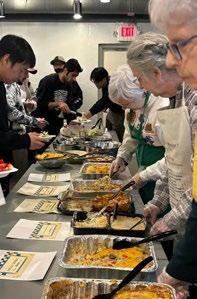

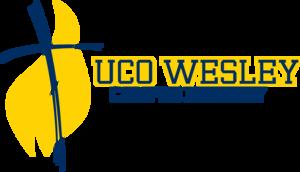
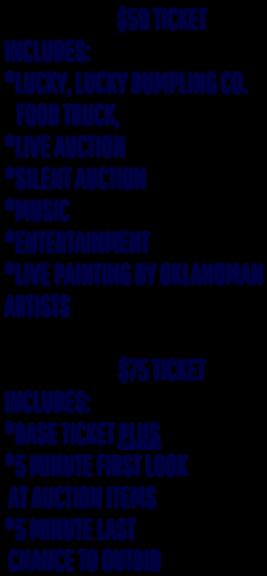

Spot 31, Inc., has its roots in the congregation of Hope United Methodist Church in Eastside Tulsa.
One evening in the summer of 2011, a small group of Hope United Methodist Church adults sat down for their Wednesday evening meal and worship service. As they served the meal, two elementary-aged children walked in the door. The adults invited the children to join them. They all ate and talked for a while. The congregation found out the children lived right next door and told them they were welcome to come by anytime.
The next week, the two neighborhood children returned to Hope and brought along two friends. These friends then brought their friends, and these friends brought more friends. In just a matter of months, the church went from serving twenty adults to feeding fifty, sixty, seventy, and eventually 80 neighborhood childrenand anyone else - who would show up on a Wednesday evening.
Hope had no children’s program, no gym, no fancy playground; yet every Wednesday at 4:30 sharp, the crowd of elementary and middle school kids would begin to gather. They just wanted to hang out until dinner, talk to each other and the adults, and then hang out some more.
Hope took a good look at their Eastside Tulsa neighborhood and discovered it was one of the most diverse, multicultural neighborhoods in the country. Located on 31st Street between 129th East Avenue and Garnett Road, the neighborhood is 41 percent Anglo, 32 percent Latino, 13 percent Black, four percent Asian, and an additional 10 percent comprised
of a variety of cultural and ethnic backgrounds.
Hope also discovered that more than 20 percent of area children lived below the poverty line. At least a third of the children were experiencing food insecurity, with some area schools providing subsidized meals to 100 percent of their students. The neighborhood was poorer than 75 percent of the country. The church also discovered that public schools were overcrowded and underfunded and that the area crime rate was three times the US average.
The congregation finally understood. Their unexpected visitors were after a hot meal and a place to feel safe for a few hours among trusted adults. They wanted a community that breathed hope
and affirmation. These children found in Hope UMC persons to step up to the plate for them and tackle some of the larger social, educational, and physical needs of Eastside Tulsa. Because of this, Hope UMC’s small, aging congregation soon became “The Spot” for children and youth to gather.
In the fall of 2014, Hope United Methodist Church formed Spot 31, Inc., an independent charitable organization to do even more for children.
Spot 31 started out tutoring and feeding children at the church, but soon grew to become an on-site after school program. The organization currently serves around 170 children at three elementary schools in the Tulsa and Union school districts, with




a director, Debbie Gant, and 12 parttime paid staff providing tutoring. This makes more sense and doesn’t require transportation of students.
Additionally, Spot 31 offers two seven-week summer camps complete with enrichment programming, field trips, and tons of fun! The camps accommodate two different age groups, and number around 70 each year.
“Every day, we have art, baking, science experiments, outdoor play, karaoke, beading, Legos, and gardening. We incorporate other activities into each week,” Gant described. “We have EMSA, police and the Fire Department visit. The Tulsa Zoo visits, along with the Tulsa Library, Southwest Dairy Association, 4H, OSU extension, and many more. The older group has field trips and many handson activities.”
When a church looks around at what’s already happening and sees a need and then acts to fill it, that is true Christian service at its finest.
“It’s quite a deal, and it’s very badly needed in our area,” said Rev. Rich Brasher, pastor at Hope UMC. “They go to the schools and tutor the kids. They feed them, too.”
Brasher noted that many children served by Spot 31 are food insecure and may not have access to healthy food at home.
He also explained that Gant is the organizer, planner, and executor of the program. And she does it all as a volunteer. She definitely has a calling to ministry.
“When we first began Spot 31, I had yet to learn what direction we would go in,” said Gant. “I met with local schools to see what the needs of our community were. I soon learned that this community needs help making ends meet - 90 percent of the families in our community work outside the home but do not earn a living. The schools are overcrowded and underfunded. Daycare in our area stops when children reach kindergarten.
“Families are desperate for a place where their children can go after school and in the summer to feel safe, learn, have fun, and be around adult mentors who can assist their children in building positive assets. I have a deep love and now a bond with this community. Families are so grateful for Spot 31 and the services we provide.
“We see their children


grow and sometimes come back and work for us at Summer Camp. We have some families whose children attend from kindergarten through sixth grade. When parents see you in the grocery store, they hug you and tell you how much they appreciate Spot 31. We have parents who tell us we taught their children to read and how much they love Spot 31.”
In a nutshell, Gant said, “I have loved every minute of getting to know our community and the families who live in it.”
If your church is interested in starting something similar, or supporting the work of Spot 31, check out the Spot 31 website or reach out to Hope UMC in Tulsa.
This story includes the origin story from Spot 31’s website, along with additional information provided by Hope UMC treasurer Linda Johnson, Spot 31 director Debbie Gant, and pastor Rev. Rich Brasher.
All photos courtesy Spot 31.

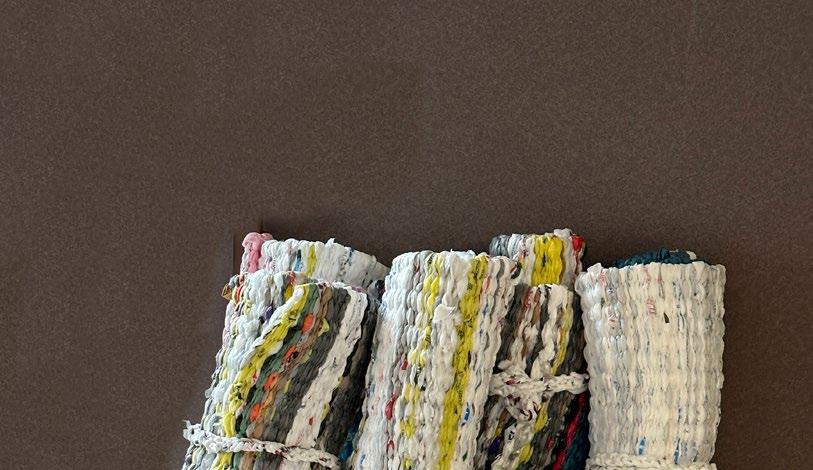
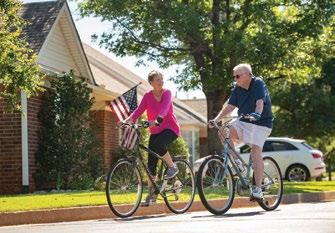
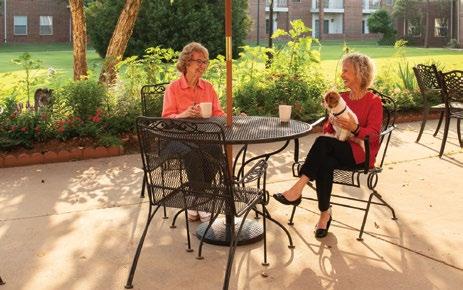

1) Use ALEX Benefits Counselor to find the plan that might be the most cost-effective for your family or individual needs
2) Select medical/pharmacy, dental and vision plans
3) Choose which eligible dependents to cover—contact your benefits office if you don’t see your dependents listed
4) Utilize health accounts for pre-tax savings this year and to save for future needs

• Benefits Access has everything you need for Annual Election, including helpful resources and plan comparisons, videos, and much more at my.benefitsaccess.org/HealthFlexBenefits
• Call your Wespath Care Coordinator if you have questions about what your claims might cost if you choose a different plan in 2025
• Use the OptumRx Drug Pricing Tool to help you estimate your pharmacy costs for 2025
ALEX Benefits Counselor uses simple language to explain your plan benefits. Use ALEX to:
• Compare HealthFlex plans—learn which plan(s) might cost you the least
• Estimate out-of-pocket costs and how to make the most of health accounts
• Visit my.benefitsaccess.org/ HealthFlexBenefits to get started


Millions have been affected by the recent hurricanes. In the United Methodist connectional system, we all stand ready to support those in need.
To find out how you can be part of the recovery, click here.
To hear Bishop Laura Merrill’s response to the hurricanes, click on the photo to the left.
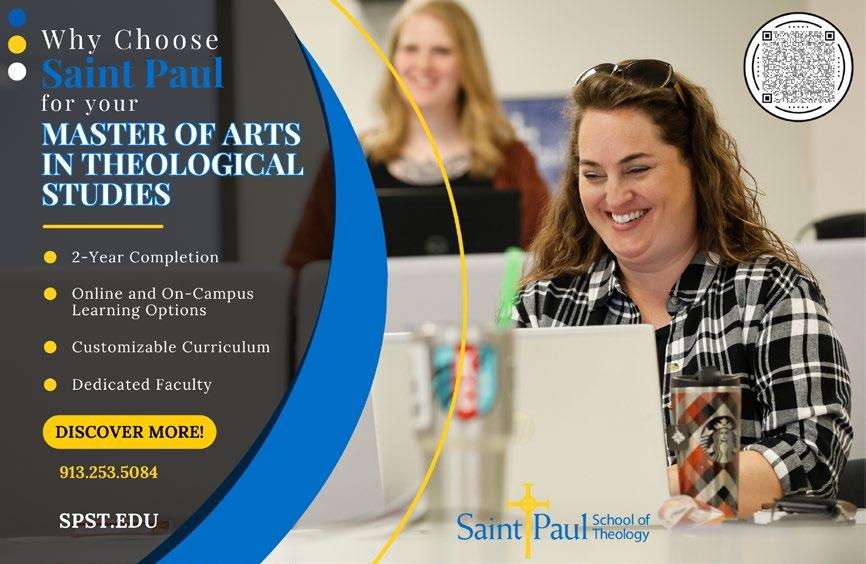


Send us photos and stories about your fun Fall events! We’d love to share your fall festivals, haunted houses, pumpkin mazes, hot chocolate bazaars, trunk-or-treats, sugaramas, or anything else you’ve been doing in this - finally! - cooler weather! Send photos and stories to editor@okumc.org.
The Ministry Center will be closed for the following holidays:
Nov. 27-28 - Thanksgiving
Dec. 25-26 - Christmas
Share your event or job opportunity in the Contact For consideration, email your listing to editor@okumc.org.